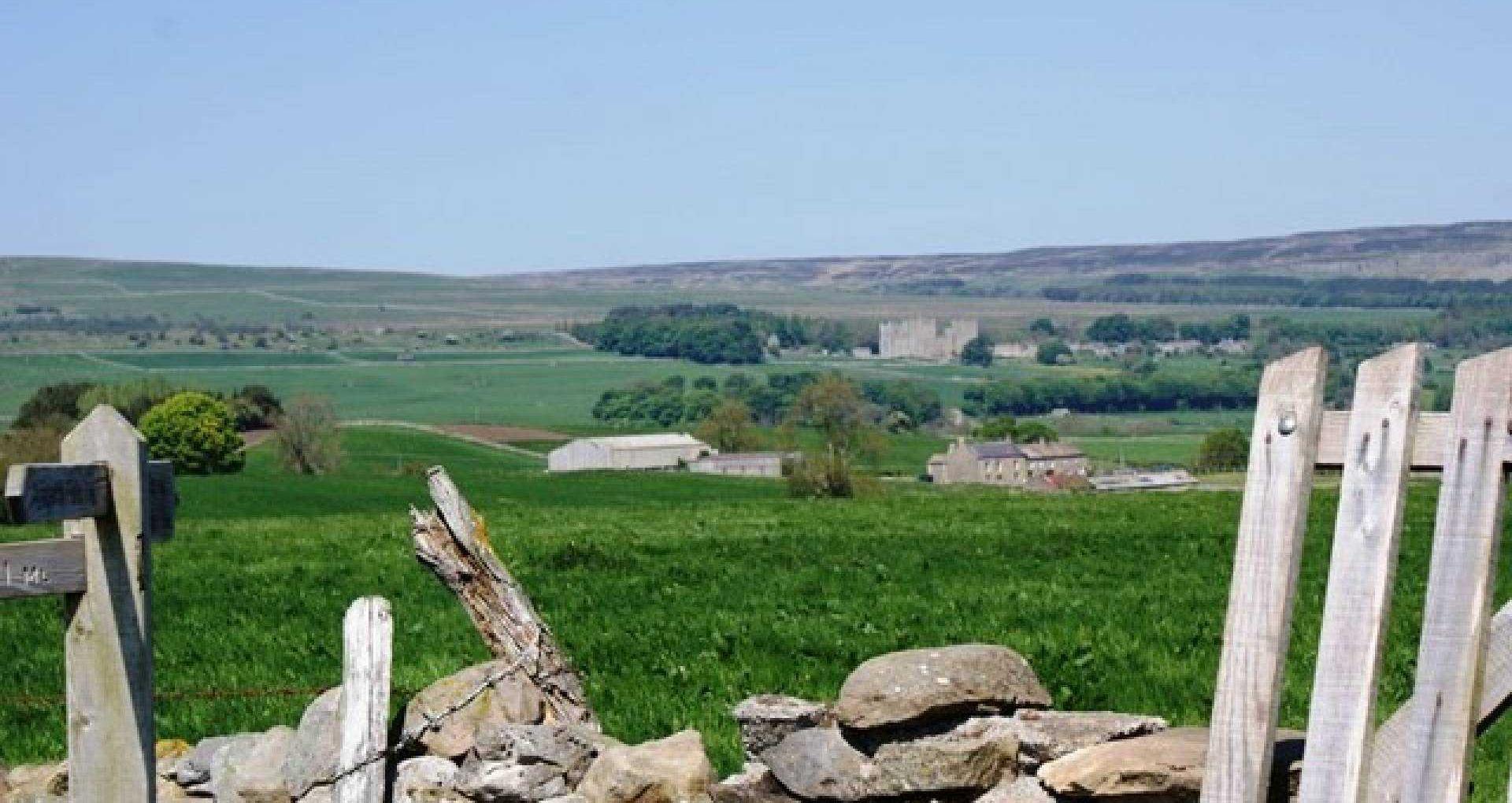
Sticking to the path - H&H Insurance Brokers (HHIB) share tips for how to encourage public safety on your land, as well as offering additional insurance insights.
With travel abroad still heavily restricted, countryside staycations are likely to be more popular than ever again this holiday season. This can come as both a blessing and a burden for rural farmers. Chris Clement, Commercial Director, is keen to outline measures you can take to ensure public safety on your land, as well as how to tackle issues such as trespassing and livelihood protection.
This April, HHIB and farmers alike warmly welcomed the refreshed Countryside Code which advises people on how to be respectful of rural areas. The updated code is clearer than ever before and amongst other advice encourages visitors to stick to marked footpaths, not feed livestock, and seek permission before wild swimming. Making the information readily available to visitors, either on a website or on site, will help them follow the guidance and respect our rural countryside.
Longer days and milder weather have always drawn walkers to Public Right of Ways, with footfall set to increase this summer as many businesses have diversified to offer camping and glamping on site. If you have footpaths on your land, they must always be accessible and never be blocked – in fact, it is the farmer’s responsibility to ensure their upkeep, along with the safe upkeep of any gates and styles that cross them. Issues can arise when people veer off the public path, and it is at this point that they are likely trespassing.
Perhaps surprisingly, trespassing is not a criminal offence but rather a civil one, meaning police have little sway in the matter. Even with this lack of legal backing, trespassing is something which should be discouraged given how many dangers can be found on working farms, which could potentially lead to a serious accident and a claim against you. If you do have a Public Right of Way on your land, here are some simple tips to help encourage people to stick to the path:
• To discourage people from unintentionally trespassing, have plenty of signage to direct people to nearby footpaths.
• If you see someone walking an unleashed dog, politely ask them to put it on a lead. You can make them aware of the hazards of a working farm and particularly of the dangers canines pose to livestock.
• If you offer staycations, consider including a section on where the public footpaths are as part of your welcome pack and ask guests to stick to them, reminding them of the areas they are not permitted to explore. This information could also be sent out in an email ahead of arrival, or given in leaflet form upon checking in, as well as published on your website.
• If you or an employee are personally welcoming visitors, it is worth reiterating this information.
With silaging, crop work, shearing and huge numbers of livestock on farms, summer is an exceptionally busy time in the farming calendar. It is also the main holiday season. With so many visitors enjoying the countryside, and this year even more so, another issue farmers might face is blocked gates. Many people don’t think twice about leaving their vehicle tucked in a gateway while they go walking but this can cause serious disruption. Provided your insurance makes an allowance for such, farmers are legally allowed to move vehicles which are blocking gates, with the clear stipulation that they don’t damage them. If you are to considering moving a vehicle, be sure to check with your insurance that you’re covered for this practice. Again, signage could help to mitigate this issue happening in the first instance.
Greater footfall means a greater likelihood of litter, which can cause practical issues as well as being unsightly. Many farmers use metal detectors while mowing to pick litter up, however aluminium cans and glass are often missed. These can then get accidentally taken up and broken down by balers, creating sharp edges, before ending up in livestock feed. This poses a considerable threat to animals, particularly cattle and horses, who can end up with injuries such as a punctured stomach which can prove fatal. Some insurance policies will cover you for such an event, but not all do. If you are making your own forage and bedding, it is definitely worth double checking your policy to ensure you’re protected.
With many holidays abroad cancelled again this year, this may be some people’s first visit to the countryside, and they may not be aware that they’re doing anything amiss. If possible, it is always best to kindly advise people if there is an issue and, hopefully, they will be happy to comply. If a situation does get heated or if you have any issues, you can dial 101 for non-emergency police assistance.
There are a great many issues which the public can pose to farmers, whether they are welcomed onto the land or not. Ensuring you have adequate Public Liability insurance is good practice to ensure you’re protected in the event of an incident. H&H Insurance Brokers include this as standard within all farm policies and Smallholder Protect insurance. If you’re unsure if your policy includes Public Liability, taking just a few minutes to double check could save you from grief further down the line and, if it’s not currently included, it’s advisable to add it on to your current policy or at the very least incorporate it upon renewing. Contact 01228 406290 if you'd like some advice - we look forward to hearing from you.
- ENDS -